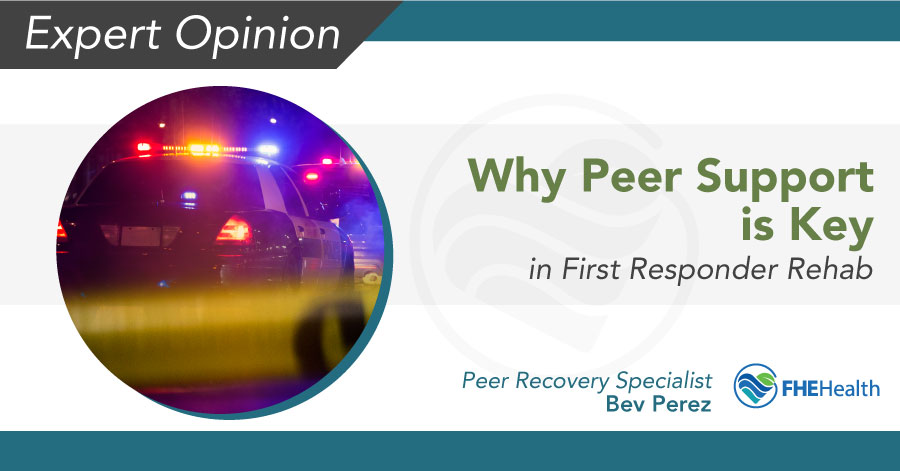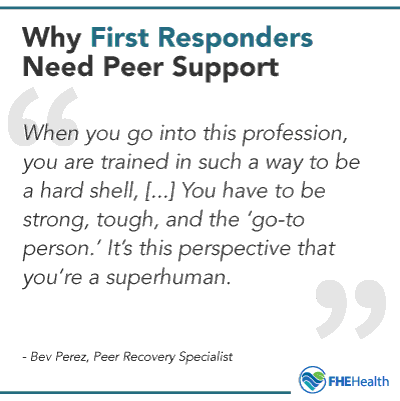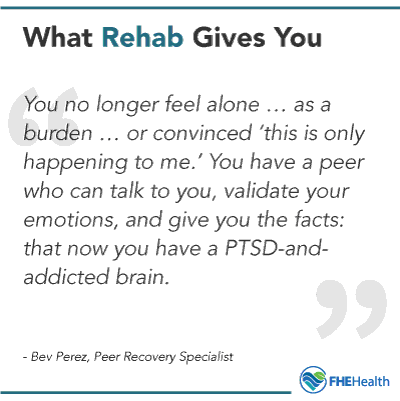
This article has been reviewed for accuracy by our peer review team which includes clinicians and medical professionals. Learn more about our peer review process.
Updated on March 14, 2025
First responder peer support is crucial. While it can be rewarding, being a first responder is also one of the hardest, loneliest, and most stressful jobs around. What many people don’t know is that substance abuse and suicide occur at dramatically higher rates within first responder professions—and because they are used to helping rather than being helped, first responders may be slow to seek treatment and feel out of place in a general rehab program.
With a support network of their own peers, on the other hand, many first responders do well in treatment and are able to make a solid recovery. This is why specialized first responder rehab programs are so important.
The Power of Peer Support
What explains this dynamic? Why is peer support so critical for first responders in rehab? Peer recovery specialist Bev Perez answers these and other questions with a rare blend of no-nonsense professionalism and disarming vulnerability. The retired police officer leads peer support groups in FHE Health’s treatment program for first responders (“Shatterproof FHE Health”).
When we connected for a recent interview, Perez had just finished one of her groups where she addresses “coping skills, mental fitness, and suicide awareness and prevention.” We began the conversation by talking about her role as a peer support specialist….
 Perez described her role as one of connecting and building relationships with other first responders about “things we’ve seen on the job.”
Perez described her role as one of connecting and building relationships with other first responders about “things we’ve seen on the job.” We asked Perez what about the first responder mindset needs to be accounted for when addressing mental health.
We asked Perez what about the first responder mindset needs to be accounted for when addressing mental health.





